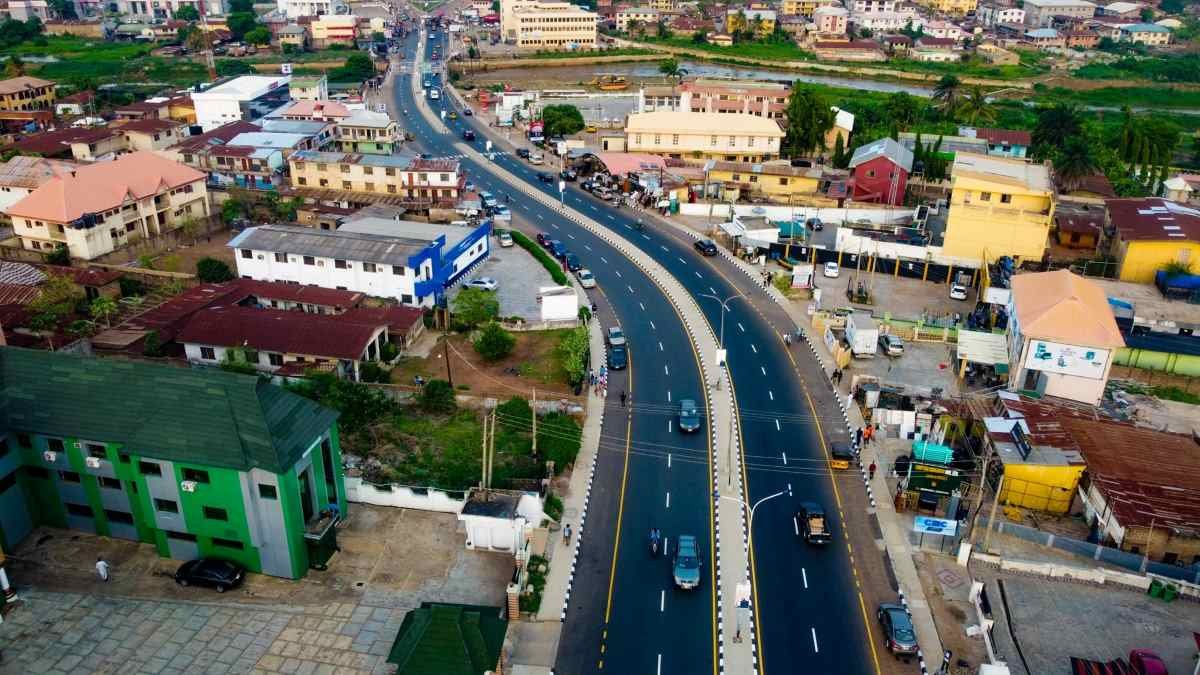
The Cheapest State to Live in Nigeria: A Guide to Affordable Living
Nigeria’s cost of living varies widely, influenced by factors such as geography, infrastructure, and population density. For individuals and families seeking a budget-friendly lifestyle, some Nigerian states offer significantly lower living costs without sacrificing essential services and quality of life. This article explores some of Nigeria’s most affordable states, examining key factors like housing, food, transportation, healthcare, and utilities that contribute to overall affordability.
1. Criteria for Affordability
Before diving into the states themselves, it’s essential to understand the factors that make a location more affordable. Here are the key criteria we considered:
- Housing and Rent: Access to low-cost housing and reasonable rental rates is a major factor for affordability.
- Cost of Food and Groceries: Lower food prices contribute to a more manageable cost of living.
- Transportation: Affordable public transportation and reduced commuting distances affect daily expenses.
- Utilities and Amenities: Costs of electricity, water, internet, and other basic services can add up quickly.
- Healthcare and Education: Access to reasonably priced healthcare and education is crucial for families.
- Overall Safety and Quality of Life: While affordability is key, safety and quality of life are also important.
Now, let’s explore some of the cheapest states in Nigeria that meet these criteria and offer a comfortable standard of living.
2. States with the Lowest Cost of Living
a. Ekiti State
Located in the southwestern region, Ekiti is one of Nigeria’s most affordable states. The capital, Ado-Ekiti, is relatively small but offers a peaceful, affordable environment with low crime rates and pleasant weather.
- Housing: Rent in Ado-Ekiti is significantly lower than in major cities. You can find a modest one-bedroom apartment for around ₦50,000–₦100,000 annually.
- Food: As an agrarian state, Ekiti has an abundance of locally produced food. Fresh produce, grains, and poultry are all available at affordable prices.
- Transportation: The small size of Ado-Ekiti makes transportation inexpensive, with minimal traffic congestion.
- Utilities and Amenities: Utility costs are generally affordable, and residents can access basic amenities without significant expenses.
- Education: Ekiti offers reputable educational institutions, such as Ekiti State University, and public schools that provide affordable education options.
b. Kwara State
Kwara State, particularly the capital Ilorin, is known for its low cost of living and offers a blend of urban and rural lifestyles. The city has a stable power supply, reasonable living costs, and welcoming communities.
- Housing: Renting a one-bedroom apartment in Ilorin costs about ₦80,000–₦150,000 annually, depending on the neighborhood.
- Food: Local markets offer affordable food options, including grains, vegetables, and other staples, keeping monthly grocery bills low.
- Transportation: The city has a well-organized transportation system, and fares for taxis and buses are affordable.
- Utilities: Utilities are more reasonably priced than in larger cities like Lagos and Abuja, and Ilorin’s power supply is generally reliable.
- Healthcare and Education: Kwara offers both private and public healthcare facilities and educational institutions, making it suitable for families seeking affordable yet quality services.
c. Ogun State
Close to Lagos, Ogun State is popular among people looking to live affordably while commuting to Lagos for work. The proximity to Lagos has contributed to Ogun’s rapid development and made it a desirable and affordable place to settle.
- Housing: Rent is significantly cheaper than in Lagos, with one-bedroom apartments available from ₦70,000–₦200,000 per year in towns like Abeokuta, Ijebu-Ode, and Sango Ota.
- Food: Ogun has a range of food options, with local markets offering inexpensive fresh produce and other essentials.
- Transportation: The state’s public transportation is affordable, and proximity to Lagos allows easy commuting for work or leisure.
- Utilities: Utility costs, including electricity and water, are generally moderate, with newer estates providing additional services.
- Healthcare and Education: There are affordable healthcare facilities and schools across the state, making Ogun a family-friendly option.
d. Bauchi State
For those looking to explore affordable options in northern Nigeria, Bauchi State stands out as one of the cheapest places to live. Known for its low cost of living, Bauchi offers a unique cultural experience and stunning landscapes, including the Yankari National Park.
- Housing: Housing is very affordable, with rental costs for a one-bedroom apartment ranging from ₦30,000–₦80,000 annually.
- Food: As an agricultural state, Bauchi offers fresh, locally produced food at low prices, making it easy to maintain a healthy diet on a budget.
- Transportation: Transportation costs are low, with cheap fares for taxis and buses within Bauchi town.
- Utilities: Utilities are generally affordable, although power supply can be inconsistent in some areas.
- Healthcare and Education: Bauchi has affordable healthcare options, and public schools provide basic education, although facilities in rural areas may be limited.
e. Benue State
Benue State, often called the “Food Basket of the Nation,” has a strong agricultural presence and a low cost of living. The capital, Makurdi, provides an affordable environment with a focus on community and culture.
- Housing: Rental prices are quite low, with one-bedroom apartments ranging from ₦40,000–₦100,000 per year, depending on the area.
- Food: Benue’s agricultural resources make fresh produce highly accessible and inexpensive, especially fruits, yams, and grains.
- Transportation: Transport within the city is affordable, with low fares for local taxis and buses.
- Utilities: Utilities are affordable, but the power supply can vary, so some residents invest in backup power solutions.
- Healthcare and Education: Public and private healthcare options are available at reasonable rates, and education is affordable, especially in public schools.
f. Enugu State
Enugu State is known for its peaceful atmosphere, moderate climate, and affordable living costs. The state capital, Enugu, is a vibrant city with a strong focus on hospitality and quality of life.
- Housing: Housing costs in Enugu are manageable, with one-bedroom apartments available for around ₦100,000–₦200,000 annually in most parts of the city.
- Food: Enugu offers a variety of food options, and food costs remain low, thanks to the presence of local markets.
- Transportation: The city is easy to navigate, and transportation costs are relatively low, especially for short commutes.
- Utilities: Utilities in Enugu are moderately priced, and the power supply is stable compared to some other states.
- Healthcare and Education: Enugu has accessible healthcare and a strong educational sector, including reputable universities and secondary schools.
3. Tips for Living Affordably in Nigeria
Regardless of the state you choose, here are some strategies for minimizing expenses and making the most of your budget:
- Rent Wisely: Opt for modest housing in safe, accessible neighborhoods. Choosing suburbs over city centers can further reduce rent costs.
- Shop at Local Markets: Local markets typically offer fresh, affordable food compared to supermarkets, helping you save on groceries.
- Use Public Transport: Public transportation is often cheaper than owning and maintaining a personal vehicle, especially for short distances.
- Embrace Renewable Energy: Investing in a small solar setup can reduce dependency on the national grid and cut down electricity costs over time.
- Take Advantage of Local Amenities: Community centers and local events often provide affordable entertainment and social opportunities.
Conclusion
Nigeria offers a wide variety of affordable states where individuals and families can live comfortably without breaking the bank. States like Ekiti, Kwara, Ogun, Bauchi, Benue, and Enugu stand out for their low cost of living, each providing unique lifestyles and community experiences. These states offer affordable housing, reasonable food costs, and accessible healthcare and education, making them ideal choices for people looking to manage their expenses effectively.
For anyone seeking to maximize their savings and enjoy a high quality of life, these Nigerian states provide an affordable alternative to the more expensive cities while still offering all the essentials for a comfortable lifestyle.







